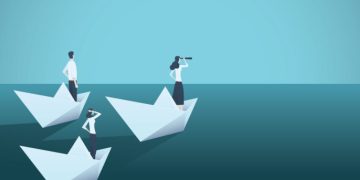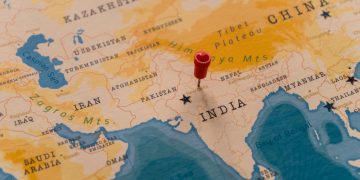OCIMF has been working on the new SIRE 2.0 regime since 2017 and is expected to become operational in 2022. Until then, the current SIRE programme will continue to be updated and improved to incorporate the latest standards, best practice and regulations.
Launched in 1993, the OCIMF Ship Inspection Report Programme (SIRE) has governed over 180,000 inspection reports. As a result, SIRE has made a significant contribution to improving the overall safety record of the maritime industry.
As the industry continues to evolve, its risk profile changes. More sophisticated risk measurement and management tools are now available. Against this background, OCIMF stresses that it is now time to strengthen SIRE and ensure it remains truly effective in today’s and future maritime environment.
Working with the industry, OCIMF is developing an enhanced and risk-based vessel inspection programme that will supersede the existing SIRE programme. The new regime will more accurately report on the quality of a vessel and its crew (on an ongoing basis) and indicate future likely performance.
The new inspection regime, known from this point forward as SIRE 2.0, will no longer be an acronym for Ship Inspection Report Exchange. In future SIRE 2.0 will encompass all of OCIMF’s inspection programmes. This includes OCIMF’s Barge Inspection Report programme (BIRE) and Offshore Vessel Inspection Database (OVID).
Four key areas of focus
- Accuracy: Facilitating an accurate description of how key safety and operational risks are managed and verified onboard a vessel.
- Capability: Training and developing inspectors who are of the highest quality, consistency and integrity.
- Reliability: Strengthening vessel inspections and reducing the number of repeat inspections required.
- Adaptability: More rapid response to human factors, industry changes, regulatory framework updates and technology advances.
In general, the new programme will be enhanced by:
- A more comprehensive inspection regime with enhanced tools, strengthened governance processes and more in-depth reporting outcomes, following a risk-based approach.
- Enhanced inspection criteria on equipment, procedures and human factors, to further improve control over vessel safety systems and processes. Enhanced pre-inspection processes and more robust monitoring protocols on the inspection process will be included.
- The use of web-enabled tablet devices to allow inspections and feedback to be reported and documented in real-time and to allow inspections to be completed more efficiently, with the adoption of a comprehensive yet standardised reporting format.
- Updated policies, procedures, and user guidance housed in an online process documentation library.
- An enhanced governance process to provide greater transparency and control for all parties involved in the programme, either directly or indirectly; and the adoption of rules that are enforceable and verifiable by OCIMF.
- Significant enhancements to training and continuing development of inspectors to ensure the highest standard of delivery is maintained and improved.
Inspections
The OCIMF enhanced vessel inspection programme will focus on improving and strengthening the vessel inspections themselves by implementing a number of initiatives.
[smlsubform prepend=”GET THE SAFETY4SEA IN YOUR INBOX!” showname=false emailtxt=”” emailholder=”Enter your email address” showsubmit=true submittxt=”Submit” jsthanks=false thankyou=”Thank you for subscribing to our mailing list”]
#1 Inspection request and validation
All inspection requests will be made through an OCIMF portal. Requests will be validated and compared with the programme’s over-arching rules to ensure they meet OCIMF’s requirements and a compliant and qualified inspector is nominated.
#2 Pre-inspection preparation
The inspection template will be populated prior to the inspection with a series of information including:
- Vessel particulars
- Certificates
- Pre-inspection questionnaire
- Past inspection observations
- PSC data
- Incident data
- Relevant photographs and plans
This information will be available to the inspector prior to boarding the vessel.
#3 Risk-based vessel inspection questionnaire
A bespoke, risk-based vessel inspection questionnaire will be generated using bow-tie methodology. Questions will cover these four key areas:
- Core: The minimum questions required to meet the members’ fundamental risk assessment criteria.
- Rotational: The questionnaire algorithm will ensure that all non-core questions are covered over a period of time and that each inspection template is designed for a defined duration.
- Conditional: Specific questions based on the available data on the vessel, operator or ship-type.
- Campaign: Area of specific focus from OCIMF and its membership requiring time-limited exposure.
Reporting
The enhanced vessel inspection programme will result in a more comprehensive and usable reporting structure and format. The report will accurately describe how key safety and operational risks are managed and verified onboard a vessel.
Significant enhancements will include:
- Much improved quality delivering enhanced value to the member.
- More detailed, reliable, granular, focused and comparable information.
- Observations set in a meaningful context and not simply reported as a KPI.
- A specific focus on process, equipment and people.
- Detailed data including photography.
- Analysable root cause analysis.
Once a report has been submitted, it will be verified by the member who had initiated the inspection. Reports will be checked for accuracy, completeness and alignment with OCIMF requirements. It will then be submitted to the report database and sent to the vessel operator.
Human factors in vessel inspections
SIRE 2.0 vessel inspections will inform vessel operators, charterers and crew if a ships’ protective systems are effective, and to what extent the critical human activities those protective systems rely on are sufficient. Processes, policies and procedures built into the inspection regime will assess human factors issues by reporting performance relating to human factors in the Vessel Inspection Questionnaire (VIQ) completed by inspectors during an inspection.
For each VIQ question with a human factor perspective, inspectors will be prompted to provide objective responses to any observations. The assessment criteria will provide the opportunity to positively recognise when important tasks are carried out effectively. Where a task is not effectively carried out, an observation will be made. When making an observation, the tablet will auto-open an editor that allows the recording of the finding.
The tablet-based finding categorisation tool will allow inspectors to record the apparent context underlying tasks or duties that are not effective (e.g. equipment issues, task design, familiarity, nervousness, etc). Following the inspection, there will also be an opportunity for the vessel operator to post a response on why the conditions exist (e.g. unaware of changed approach, time constraints, fatigue).


































































I am a retired Master Mariner and worked on tanker vessels in my entire career and SIRE 2.0 to my understanding must be a helpful new approach to preventing harm to people and the environment as also aimed by every SMS Manual.
WITH MORE BURDEN ON SHIP STAFF DUE TO SIRE 2.0, WHERE THEY EXPECT SHIP CREW TO BE ASTRANAUTS THEN SALARY SHOULD ALSO BE PAID LIKE ASTRANAUTS. FORE SIRE 2.0 SALARY HIKE IS MUST HICH IS STAGNANT FROM YEARS AS COMPARED TO THE WORLD.